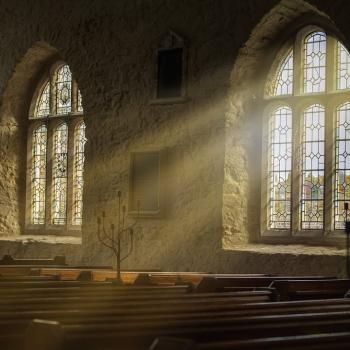We’ll be getting the names of the people nominated for Presiding Bishop of The Episcopal Church in a few hours and people have already named the demands of the task.
But I have a sinking feeling that – just as with the election of other national leaders – some of us will fall into the trap of thinking that this election will change everything. There will be conversations about the particular camps into which the candidates fall; their capacity for leadership; and the likely shape of their time in office.
But, truth be told, given both the structure of the church and ineffable but critical distinction between leaders and managers, the chances of this or any election making that night and day difference is negligible to non-existent. People who can operate the machinery may get an institution from day one to day three in a responsible fashion. But moving people from one place to another in their vision for the future is an entirely different enterprise.
So, when we think about PBs, it’s worth thinking about J, because – unlike Presiding Bishops – Jesus did take people from one view of the future to another. Setting aside the Incarnation for a moment (which is the real game changer and a bar too high for the candidates), I’d note the following:
One, Jesus did not need to hold a particular office to make a difference.
No fancy dress, no penthouse in Jerusalem, no “connections.” If anything, Jesus was quite the opposite. He had commonplace family connections and he came from a disreputable neighborhood.
The next PB should not confuse pedigree and the trappings of office with doing the job that lies ahead; and we should not confuse electing a PB with the possibility of making a difference. Change can come from places you least expected.
Two, Jesus didn’t confuse running an institution with changing the way that people live and think.
Jesus criticized the Temple bureaucracy, to be sure, but he didn’t give any serious time or attention to running it.
That’s not a license to mismanage the institution, but it is worth remembering that other things matter more.
Three, while others were drawn to him, Jesus didn’t rely on his charismatic charm to change things.
I’ve heard people comment in the past, he / she “looks” like a bishop; and I’ve met people whose public demeanor is a well-oiled machine. Some of those people are so studied and opaque that it’s hard to say you’ve ever met the person behind the suit.
Jesus, by contrast, doesn’t seem to have “managed” people’s perceptions. Instead, he spoke the truth where and when it was important.
The next PB will need to remember that charm is not enough; and the people who vote for the next PB shouldn’t settle for it.
Four, Jesus had a prayer life.
We don’t get a lot of windows of a discreet nature into that life from the gospels, but the overriding impression is that prayer was the fulcrum of Jesus’ life. Out of those experiences also came a sense of intimacy with God.
When was the last time we asked a candidate about their prayer life, or when was the last time that we could say that the results were palpable? More to the point, will we place a priority on it? The answer lies in the shape of our own prayer lives.
Five, Jesus also knew that lasting change is individual change.
We place a great deal of emphasis on changing things nationally, globally, and legislatively. Our motives for that kind of change are no doubt mixed. Some long for change out of a desire to make things better for large numbers of people. At times, that desire arises out of hubris and impatience.
Whatever our motives, it is clear that no systemic change we make – however good a thing it might be – necessarily changes the hearts and minds of individuals. Jesus understood this and the next PB had better be aware of it as well.
Transformative leaders aren’t a bundle of glitz that gets things done by force of personality. They are people who speak deeply to the possibility of transformation in the lives of those they lead.
Six, Jesus provided a window into the presence and possibility of an encounter with the living God.
At a General Convention devoted to the bureaucratic shuffling of deck chairs, inevitably the conversation about the next PB will revolve around his or her ability to steer that process. The conversation could, in fact, get stuck there.
That’s a pale contrast with the life of Jesus, whose every fiber suggested the possibility of meeting God. It would be a mistake to expect a Presiding Bishop to embody that possibility in the same fashion. But the Incarnation is both a unique event and a window into God’s way of being.
One would hope that the next PB will be present to God in ways that makes that transparency to the divine a reality for others. But we shouldn’t suppose that any PB can do that for the rest of us.
That’s definitely J’s job.












